How bar workers are trained to help stop rape
- Published

Staff in pubs and clubs across Scotland are being offered training to help stop people from becoming victims of rape.
"Bystander training" aims to make it easier for bar and door staff to spot when to intervene inside venues.
It's running alongside Police Scotland's anti-rape campaign We Can Stop It, which has just released a new advert targeted at men aged 16-27.
Graham Goulden from the Scottish Violence Reduction Unit tells Newsbeat what bystander training involves.
Beating the myths
"The first thing is raising awareness about the issue of sexual violence," Graham explains.
"I'll talk about consent, and the victim-blaming myths such as if a girl is wearing a short skirt then it's her fault.
"We'll never prevent these incidents if we focus on the victim."
A session typically lasts 45 minutes to an hour.
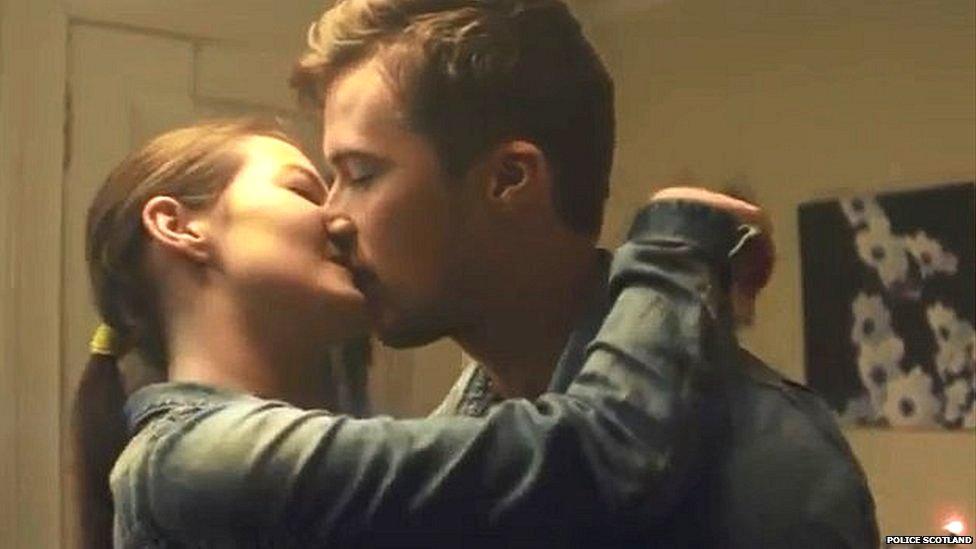
Police Scotland's new advert is targeted at men aged 16-27, who carry out a third of rapes reported in Scotland
Bystander power
"Most people will think of a bystander as passive, but they can do something," Graham insists.
Graham asks the group to close their eyes and imagine a loved one being physically attacked in the street.
"Then I get them to imagine a third person who's in a position to do something, but they walk away.
"We talk about how they feel. They all feel angry, upset and helpless. But who do they feel angry at? They all feel angry at the bystander and not the perpetrator."
The group then explores why the bystander chooses to do nothing.
"The simple reason is fear," Graham says.
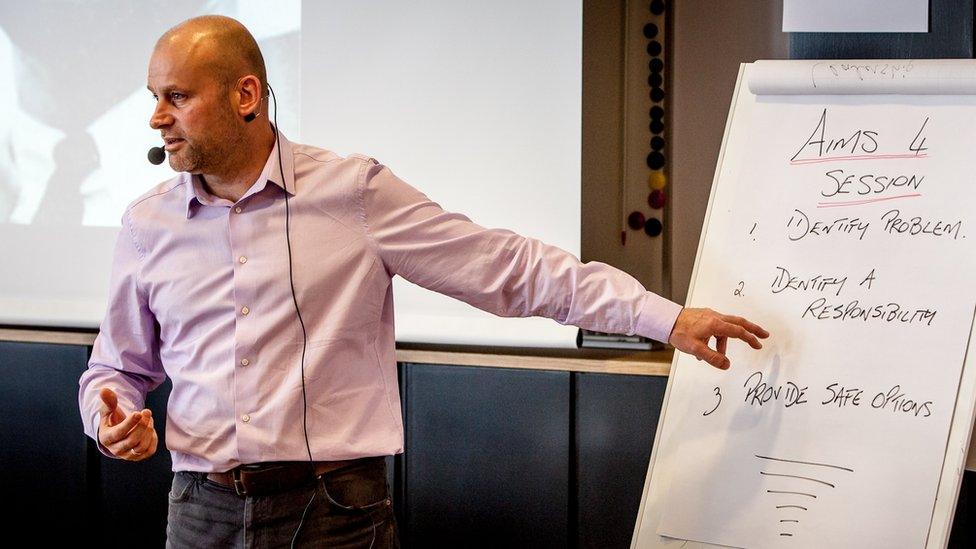
Graham has been a police officer for 28 years and says he's trained about 1,000 pub and club workers in the past couple of years
Red flags
Graham then plays a dramatised film, which shows the lead-up to a sexual assault on a woman by a man over the course of a night.
In the film, there are several bystanders. At first they don't do anything but in the second half, the film rewinds and shows them intervening.
"They say it makes them feel uncomfortable, and I say good because that's how we make progress in these things."
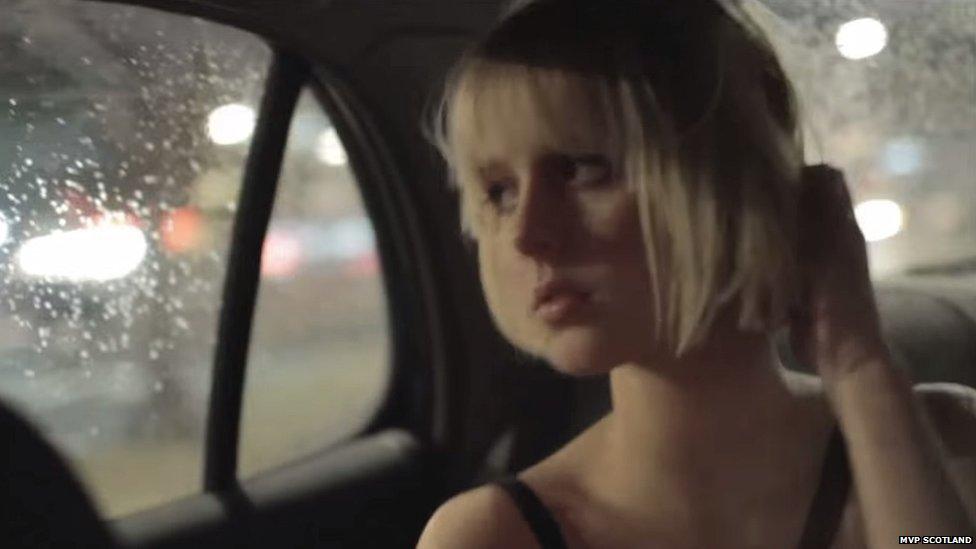
The video tells the story of a night that ends with a sexual assault when bystanders don't do anything
The group discusses the "red flags" in the film, which include the man making persistent advances and buying the woman more alcohol, friends not checking on the woman and door staff not intervening when the pair leave.
"Then we talk about consent and what consent means to you. Do you think she's capable of giving consent?
"People in the pubs and clubs industry have a duty of responsibility to their customers.
"They see their responsibility and the next step is to give them the tool to be an active bystander."
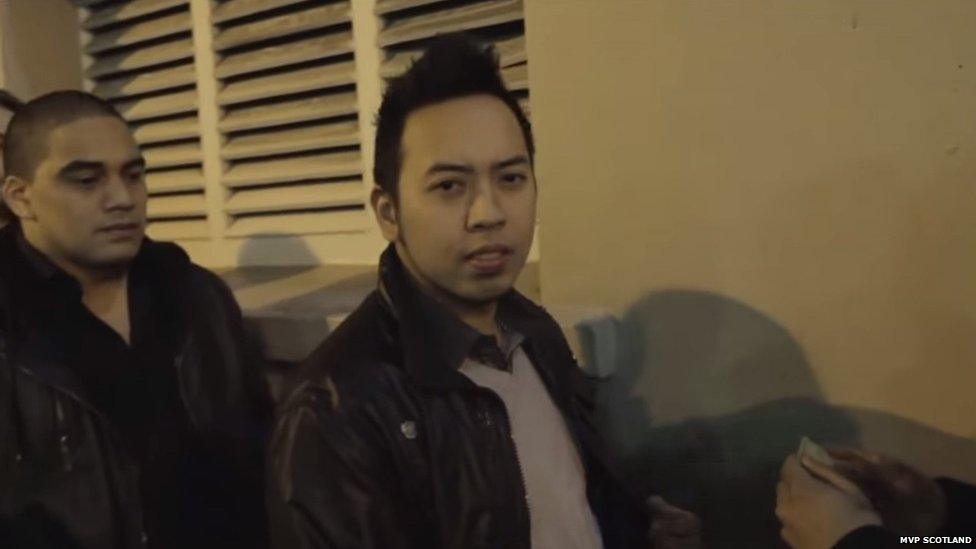
The video highlights different bystanders who don't do anything, before rewinding to show them intervening
Different ways to intervene
The last part of the workshop focuses on different ways of intervening, plus the actions and the consequences.
"You can do nothing, but what's the consequence? The victim gets raped and perpetrators are not challenged," explains Graham.
"There is direct intervention, although the consequence is you could put yourself in harm's way."
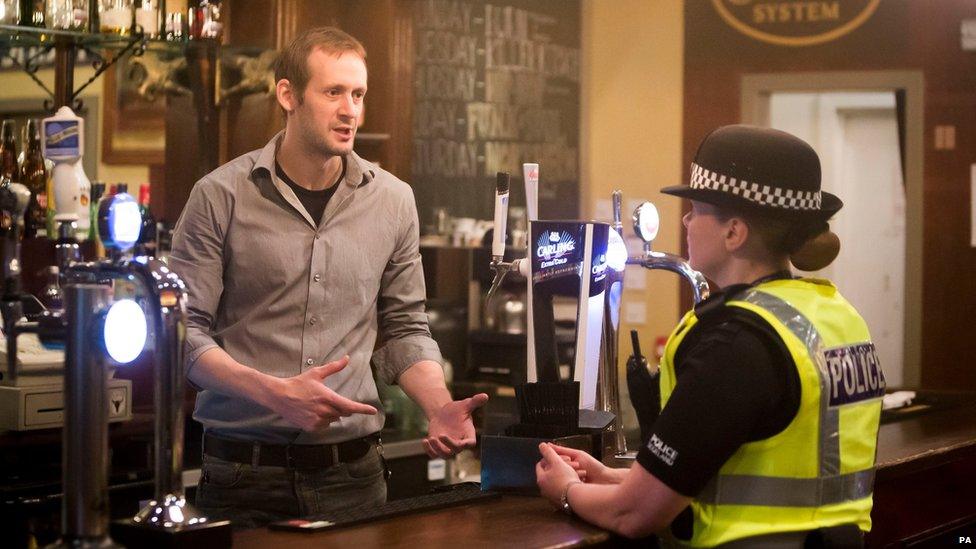
A bystander training session was held at the Butterfly and Pig bar in Glasgow on Wednesday morning
Then there's indirect intervention, like a disruption or distraction.
"That could be you going up to a person and asking them how their night is - from that you could learn they're OK, or they're in a couple."
Other methods include approaching someone with other members of staff, or making sure a person is reunited with their friends.
Police Scotland tweeted these photos of a bystander training session., external
The last one is to call the police if there are real concerns.
According to Graham, dealing with sexual violence is "a top priority for police in Scotland".
Head to BBC Advice for more on sex and relationships
Follow @BBCNewsbeat, external on Twitter, BBCNewsbeat, external on Instagram, Radio1Newsbeat, external on YouTube and you can now follow BBC_Newsbeat on Snapchat